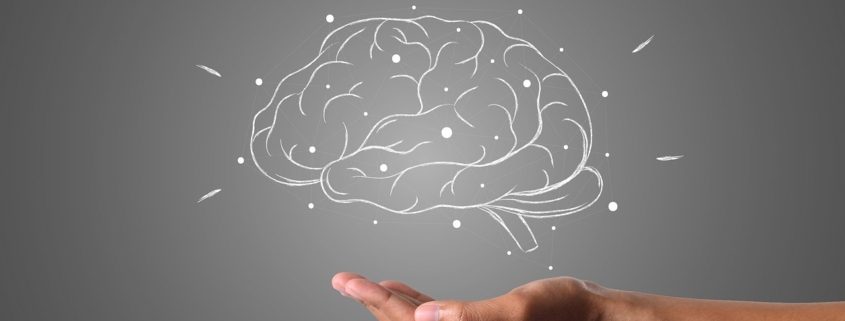Reignite Your Mental Spark
Mental HealthReignite Your Mental Spark
Introduction:
Memory is one of the most intricate and fascinating functions of the human brain. It forms the foundation of our experiences, learning, and identity. Whether it’s remembering your first day at school, a cherished family recipe, or the name of someone you just met, memory allows us to navigate and make sense of the world. However, memory is not infallible, and as we age, many people notice a decline in their cognitive sharpness.
This blog will delve deep into the mechanisms of memory, the factors that contribute to memory decline, and explore scientifically-backed strategies to reignite mental clarity and cognitive performance.
Understanding Memory: The Science Behind the Process
To understand memory decline, we first need to understand how memory works. Memory is a complex process that involves encoding, storage, and retrieval. According to the Atkinson-Shiffrin model, memory can be categorized into three stages: sensory memory, short-term memory (or working memory), and long-term memory (Atkinson & Shiffrin, 1968).
Sensory Memory:
This is the initial, ultra-short-term stage where sensory information (sights, sounds, smells) is briefly held for less than a second. For instance, the fleeting image you have after glancing at a painting before your mind starts processing it is a sensory memory.
Short-Term Memory:
This stage holds information temporarily for about 20 to 30 seconds. Short-term memory is akin to the “scratchpad” of the brain. It’s where your mind holds on to phone numbers or words just long enough to dial the phone or finish reading a sentence.
Long-Term Memory:
If the information is processed further, it may enter long-term memory, which has the capacity to store vast amounts of information for long periods, sometimes even a lifetime. It includes everything from facts (semantic memory) to personal experiences (episodic memory) and skills (procedural memory).
Neuroscientific research has identified that specific areas of the brain, like the hippocampus, amygdala, and prefrontal cortex, play crucial roles in memory formation and recall (Squire, 2009). Memory is not just stored in one place but is distributed across various regions of the brain depending on the type of information being processed.
Factors Affecting Memory Decline
Memory decline can happen due to various reasons, with aging being one of the most common causes. However, other factors like lifestyle, environment, and health conditions can accelerate memory issues.
We have a published Podcast talking directly about these same issues,If you would like to listen to it CLICK HERE
Aging:
Natural aging brings changes to brain structure and function. The hippocampus, an area responsible for forming new memories, shrinks with age. Additionally, the brain produces fewer chemicals (neurotransmitters) that facilitate communication between neurons, leading to slower processing speeds (Glisky, 2007).
Stress:
Chronic stress can impair memory by increasing the level of cortisol, a hormone that affects the hippocampus and can interfere with the encoding and retrieval of memories (Lupien et al., 2009).
Lack of Sleep:
Sleep is essential for memory consolidation. The brain processes and consolidates memories during the various stages of sleep, particularly during deep sleep and REM sleep. Chronic sleep deprivation can reduce the brain’s ability to store and retrieve information (Stickgold & Walker, 2013).
Poor Nutrition:
Diets high in sugar, unhealthy fats, and processed foods can affect brain health and impair memory. On the contrary, omega-3 fatty acids, antioxidants, and a nutrient-rich diet promote better brain function (Gómez-Pinilla, 2008).
Health Conditions:
Conditions like hypertension, diabetes, and cardiovascular diseases can affect blood flow to the brain, causing damage to memory-related areas. Mental health conditions like depression and anxiety also negatively impact memory retention and recall.
Sedentary Lifestyle:
Physical activity enhances neurogenesis (the growth of new neurons) and supports the brain’s plasticity, which is crucial for learning and memory. A sedentary lifestyle can diminish these brain benefits (Erickson et al., 2011).
Strategies to Boost Memory and Reignite Cognitive Function
Memory decline isn’t inevitable. Numerous evidence-based strategies can help maintain and even enhance cognitive function at any age. By implementing certain habits and interventions, we can protect our brain’s memory capabilities.
Stay Mentally Active:
Keeping the brain stimulated is one of the most effective ways to prevent cognitive decline. Engage in activities that challenge your brain, such as learning new languages, solving puzzles, playing musical instruments, or playing chess. A study published in the New England Journal of Medicine found that elderly individuals who engaged in mentally stimulating activities were less likely to develop dementia (Verghese et al., 2003).
Physical Exercise:
Regular physical activity promotes better blood flow to the brain, which helps keep it healthy and boosts memory. Aerobic exercises like walking, swimming, or cycling have been found to be particularly effective at improving memory and cognitive performance (Smith et al., 2010). Additionally, strength training has been linked to better memory performance in older adults.
Get Adequate Sleep:
Prioritizing sleep is crucial for memory consolidation. Research shows that people who don’t get enough sleep are more likely to struggle with memory recall (Diekelmann & Born, 2010). Aim for 7-9 hours of quality sleep per night and practice good sleep hygiene.
Eat a Brain-Boosting Diet:
Following a healthy diet rich in fruits, vegetables, whole grains, lean proteins, and healthy fats can improve cognitive function. The Mediterranean diet, which is rich in antioxidants and omega-3 fatty acids, has been associated with lower rates of memory decline and dementia (Scarmeas et al., 2006).
Manage Stress:
Incorporating stress-reducing techniques such as meditation, deep breathing, or yoga can help maintain brain health. Meditation has been shown to increase gray matter density in the hippocampus, improving memory and learning abilities (Holzel et al., 2011).
Stay Socially Engaged:
Maintaining social connections and engaging in regular social activities can protect against memory loss. Social interactions stimulate brain regions involved in memory and emotional regulation, keeping these areas active.
Try Mnemonic Devices:
Mnemonics are memory aids that help with recall by associating new information with familiar concepts. Acronyms, visualization techniques, and chunking (grouping pieces of information) are examples of mnemonics that enhance memory retention.
Real-Life Examples of Memory Decline and Recovery
Real-life examples offer insights into how memory decline manifests and the potential for recovery. One famous case is that of Henry Molaison (H.M.), a patient who underwent surgery to treat epilepsy but lost the ability to form new memories afterward. His case shed light on the crucial role of the hippocampus in memory formation and led to groundbreaking discoveries about how memories are stored and retrieved.
Another example is the impact of Alzheimer’s disease, which progressively destroys memory and cognitive functions. Alzheimer’s is one of the most common causes of memory decline in older adults. However, research into treatments like cognitive stimulation therapy (CST) has shown promising results in slowing down cognitive decline in patients with mild to moderate Alzheimer’s (Spector et al., 2003).
On the flip side, there are inspiring stories of individuals who have managed to regain or improve memory function despite challenges. Actor Michael J. Fox, who was diagnosed with Parkinson’s disease, has shared how mental exercises and physical activity have helped him maintain cognitive function despite his condition. His story highlights the power of lifestyle interventions in protecting the brain.
The Future of Memory Enhancement
As scientific research advances, the future of memory enhancement looks promising. Neuroplasticity, the brain’s ability to reorganize itself by forming new neural connections, is at the forefront of this research. This concept suggests that even in cases of memory decline, the brain can adapt and recover lost functions through targeted therapies and training (Pascual-Leone et al., 2011).
In addition, emerging technologies such as brain-computer interfaces (BCIs) and neurostimulators hold the potential to boost memory and cognitive performance. BCIs, which enable direct communication between the brain and external devices, have shown promise in helping individuals with memory impairments regain some cognitive functions (Hampson et al., 2018).
Conclusion:
Understanding how memory works and what causes its decline is the first step toward protecting and enhancing this critical cognitive function. While memory decline can be disheartening, the brain’s remarkable plasticity offers hope. Through lifestyle modifications, mental stimulation, and emerging technologies, we can reignite our mental spark and sustain cognitive vitality well into old age.



